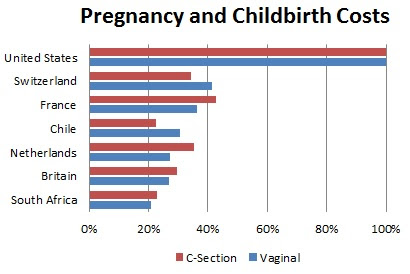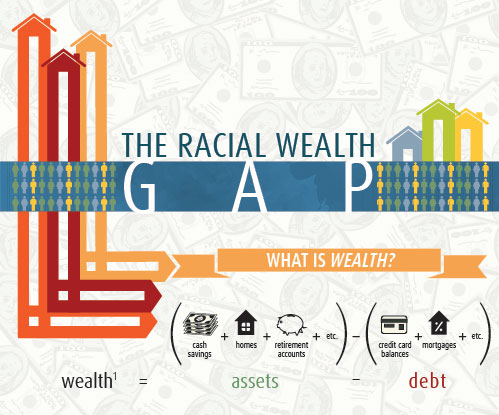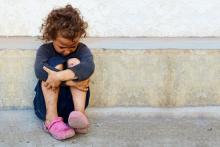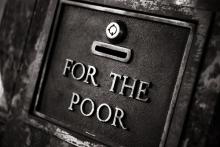Inequality

"American Way of Birth, Costliest in the World"
That's the headline of an article by Elisabeth Rosenthal in yesterday's New York Times. The article includes a chart comparing childbirth costs in seven countries. In the United States, the average amount paid for a conventional delivery in 2012 was $9,775; for a Caesarean section, it was $15,041. Those are the highest prices for childbirth anywhere in the world.
To get an idea of just how high, I made a chart using the figures in the NYT chart. Childbirth costs in the other six countries range from 21 percent to 43 percent of U.S. costs even though American women typically spend far less time in hospital.

South Africa is so dangerous for childbirth that its graph line would not fit on this blog page. For every 1,000 births, there are 56 infant deaths. For every 100,000 births, there are 400 maternal deaths. [Chart by L. Neff; data from WHO]
 The United States is the richest country in the world, but only three-quarters of Americans have enough to eat.
The United States is the richest country in the world, but only three-quarters of Americans have enough to eat.
New data from the Pew Research Center shows that nearly a quarter of Americans had trouble putting food on the table last year — 24 percent is a lot of hungry people in the richest country in the world. It’s not normal, either – most other advanced economies had much lower rates of hunger. We think that the U.S. economy is similar to that of Canada or Britain; our hunger rate is closer to that of Indonesia, South Korea, or Greece.
Numbers like that are shocking, because we prefer to think of ourselves in nationalistic terms. “The richest, most powerful country on Earth” definitely makes us feel better than realizing that things aren’t so great for many of us. One in four of us is hungry.
We don’t like to think about this, but we aren’t doing so well by a lot of standards. Last month, UNICEF published a report on child wellbeing in developed countries. The United States was ranked 26 out of 29, above Lithuania, Latvia, and Romania. Our children were doing worse than those of Greece.
Is this really where we want to be?

While the consequences of social privilege are alarming for numerous reasons, we are reminded that such systematic inequalities are by no means unique to the current day and age. For example, during Jesus’ ministry he encountered a predominant culture that distributed a wide variety of elite benefits based upon gender, class, ethnicity, and other forms of false favoritism. However, one of the primary distinctions of Jesus’ life, which he continually modeled for his disciples, was a prophetic confrontation with unjust structures of social privilege.
As Jesus accompanied women, tax collectors, lepers, prostitutes, and others firmly placed on the underprivileged margins of society, he repeatedly sought the reversal of embedded discrimination and disadvantage. In doing so, not only did Jesus promote Good News of eternal life for after death, but he sought to “let the oppressed go free” (Luke 4:18) for the fullness of life after birth.
While Jesus continually endorsed the revolution of unjust social privilege, and although he taught his followers to do likewise in his name, the harsh reality is that privilege based on prejudice is profitable, which makes it difficult – if not impossible – for those in power to surrender voluntarily

IN AMERICA, WE honor the ideal of equality and the myth of equal opportunity—but the secret we refuse to acknowledge is the debilitating, dehumanizing effects of poverty. As a pastor serving the South Side of Chicago, I witness firsthand the pain that poverty inflicts upon our congregation and the scars it leaves on the most vulnerable: children. Faith in Christ should mean a commitment to the poor.
There is a growing wealth gap between African-American households and white households. A Pew research study, for example, shows the dramatic change between 2005 and 2009. In 2005, the typical white household had a net worth of $134,992 (in 2009 dollars), while the typical black household had a net worth of $12,124—9 cents for each dollar the white household owned. By 2009, that fell to 5 cents, as the typical black household saw its net worth drop more than 53 percent, as compared to a drop of 16 percent for the average white household. And, alarmingly, 35 percent of black households in 2009 had a zero or negative net worth.
A few seek to blame this damaging downward trend on the current administration's policies. This is unfair and incorrect. Black families have traditionally built wealth through homeownership, but since the mid-1990s we have witnessed a dramatic increase in bank mergers—and predatory lending. Local banks, now owned by large corporate institutions with little interest in community investment, increasingly close branches in poor communities, then check-cashing establishments fill the void in financial services. At the same time, our nation faces the loss of manufacturing and the dismantling of organized labor. The triple threat of regressive economic policy, unchecked expansion of large, unaccountable financial institutions, and the economic crisis of 2008 devastated parts of cities across the nation: Chicago, Cleveland, Detroit, Atlanta, New York, Buffalo, Flint, and many others.
Editor's Note: This column is part of a duo of posts commenting on racial reconciliation in light of Martin Luther King, Jr. Day. Read the accompanying piece, "A Convenient Truth: I Am White."
I am black in the United States of America. It is quite inconvenient to be black in the United States of America. It has always been inconvenient to be black in the United States of America.
My African ancestors were brought to the United States in chains against their will, taken straight to the plantations, and forced into slavery. They did not pass through Ellis Island, as did most of the ancestors of my white counterparts. My ancestors who fought in two world wars were not allowed any advantages of the GI Bill, schooling, the trade unions, or the opportunities of corporate America that white veterans had; therefore, as a black baby I am more likely to be born into a family who is mired in systemic poverty than a baby who is white.
I am much more likely to live in an impoverished neighborhood, receive an inferior education in a neighborhood school, and not graduate from high school than white students my age. Those are inconvenient truths.

Editor's Note: This column is part of a duo of posts commenting on racial reconciliation in light of Martin Luther King, Jr. Day. Read the accompanying piece, "An Inconvenient Truth: I Am Black."
I am white. It is quite convenient to be white. In fact, it has always been convenient to be white in the United States of America.
According to the U.S. Census Bureau, I am more likely to be employed than someone who is not white, I am less likely to be incarcerated, I am more likely to be covered by health insurance, and I am more likely to enjoy a comfortable retirement and eventually die peacefully in my elder years. I am more likely have a college education than a non-white person, my (white) wife is more likely to receive excellent medical care, my (white) children are more likely to attend private schools with skilled teachers, and my (white) family is more likely to have a roof over our heads, a few cars in the garage, and more than enough food on our table.
While individual cases vary, to be white is – generally speaking – a convenient truth.
There are countless factors one could cite for the current levels of race-based inequality in the U.S., and many opinions exist surrounding potential solutions, yet there are three points of emphasis that need to be addressed for the advancement of racial reconciliation.

EVER SINCE THE apostles positioned Mary Magdalene as an “unreliable narrator” telling an “idle tale” in Jesus’ resurrection story, some men in the church have claimed maleness as normative and orthodox and femaleness as, well, not.
In the recent case of the Vatican vs. the Leadership Conference of Women Religious (LCWR), the integrity of women’s witness is, once again, called into question by male hierarchs.
These Catholic sisters represent an unbroken, cohesive expression of faith in the history of American Catholicism and in women’s presumption of equality, completeness, and active moral agency both under law and under God—a presumption that is a shining light for women around the world. The sisters might have once shared accolades for faithful servant leadership with their brother priests, bishops, and cardinals, but over the course of nearly 30 years of unfolding pedophilia scandal and blasphemous mob-like cover-up, the laity has learned to look to the sisters alone for examples of Catholic gospel witness and Christian maturity, strength, and just plain grit.
But let’s not sideline this issue as “a Catholic thing.” We don’t get off that easy. The struggle over women’s authority runs right through the denominational diaspora of the body of Christ.
Each Sunday, in many churches across North America, congregants hear these words preparing them for communion: “The Lord Jesus, on the night when he was betrayed, took a loaf of bread ...”
However, few churchgoers kneeling for bread and wine at the altar may know that these words in 1 Corinthians 11:23-26 are set in a longer section (11:17-34) that begins sharply: “Now in the following instructions, I do not commend you, because when you come together, it is not for the better, but for the worse!” Paul continues the attack in verse 20: “When you come together it is not really to eat the Lord’s supper. For when the time comes to eat, each of you goes ahead with your own supper, and one goes hungry, and another becomes drunk” (emphasis added).
What Paul describes sounds more like a food fight in a high school cafeteria than our solemn rituals. Have we missed something in this text?
This article isn’t mainly about food. It’s about inequality—the 99 percent versus the 1 percent. But when you live in the Roman Empire where most inhabitants live at or below subsistence, earning enough daily bread is the main thing you think about.
A longtime friend, George McClain, and I are presently finishing a curriculum simulating a house church planted by Paul in Corinth during the years 50 to 51 C.E. We owe much to the research of biblical and classical scholars and archeologists on power relations in the Roman Empire. This “empire-critical” method examines the sociological, political, religious, and economic structures that underpin first century Rome. Such structures contrast starkly with the “kingdom of God” as proclaimed by Jesus and his apostle Paul.

Demonstrations Whisper Of An Arab Spring In Jordan; Perfect Storm Threatens Long-Term Unemployed; Obama: Birth Control Policy Meets Everyone's Needs; Will Inequality Keep Getting Worse?; What Davos, Occupy Have In Common; On Immigration, 'Amnesty' Isn't A Four-Letter Word (OPINION); In Year Of Uprisings, Reporters Brave Crackdowns From Wall St. To Tahrir Square (OPINION).

The End Of 'Compassionate Conservatism'?; Tunisia Faces A Balancing Act Of Democracy And Religion; Occupy D.C. Protest Stays Peaceful As No-Camping Deadline Passes; The Republicans' Hispanic Problem; What Does The Future Hold For Iran?; The End Of Health Insurance Companies (OPINION); Syria Unrest: Clinton And Hague Back Arab League Plan At UN; Inequality, The Middle Class, And Growth; Number Of Asset-Poor Americans Rising.

The 99 percent offers work and wealth
to the commons
with blessing and prayer.
In return
schools, fire stations, police officers,
Medicare, Social Security, and Food Stamps
Are snatched from open hands.

Democrats See Opening To Attract Religious Voters In 2012 Election; Does Inequality Matter?; From Occupy To Progressive Renewal: Demanding The Just Society; Occupy Movement A Reminder Of What We Value; The Annual 'War On Christmas' Shows How A Faith That Once United America Now Divides It; Religious Leaders Target Repeal Of N.C. Death Penalty Law; Gulnare Free Will Baptist Church: Kentucky Congregation Overturns Ban On Interracial Couples.

The Defining Issue Of The 2012 Presidential Race?; We've Got Christmas Wrong, Think Tank Reveals; Interracial Couple Banned From Kentucky Church; In Pictures: How Many Adults Believe In God?; Why Has Inequality Gone Up So Much?; New Bible Includes the Word "Immigrant," Brings Moral Clarity; Sacrifice Yourself To The Golden Calf Of Capitalism.

Top 10 Reasons Alabama’s New Immigration Law Is A Disaster For The State’s Economy; Undocumented Immigrants Facing Deportation: Caught Up In Confusion, Lost Records, Inconsistent Policy Enforcement, And Difficult Choices; A Deeper Look At Income Inequality; Why The Debt Panel Is In Trouble; How Congress Occupied Wall Street (OPINION – Sarah Palin); 68 Percent Of The Sons Of The 1 Percent Work At Their Dad's Company; More Than 1 In 5 U.S. Children Poor, Census Says.
On Nov. 5 folks all over the world will divest from Wall Street and its banks … in order to invest in a better world.
Ideologies alone are not enough. There came a point in the movement to abolish slavery where ideology required responsibility. As one abolitionist said, “The only way to be a good slave-owner is to refuse to be a slave-owner.” To truly be against slavery also meant that you didn’t drink sugar in your tea, because sugar was produced with slave labor.
So on November 5, my wife and I will be joining the “Move Your Money” celebration, moving our money from Bank of America to the non-profit credit union here in Philadelphia.
It is one small step away from the vicious cycle that continues to see money transfer from the increasingly poor to the increasingly rich.
It is trying to take to heart Jesus’ command to “Get the log out” of my own eye.
It is a move towards Gandhi’s call to “Be the change you want to see in the world.”
It’s one little step towards being less of a hypocrite tomorrow than I am today.
 #OccupyWallStreet (the New York-based protest against social and economic inequality, corporate greed, and the influence of corporate money and lobbyists on government) has moved to a new location, a street where the air is far sweeter than on Wall Street.
#OccupyWallStreet (the New York-based protest against social and economic inequality, corporate greed, and the influence of corporate money and lobbyists on government) has moved to a new location, a street where the air is far sweeter than on Wall Street.
Won't you tell me how to get, how to get ... there?
That's right, folks, the occupation has taken over Sesame Street.
Wall Street has been devastating Main Street for some time. And when the politicians -- most of them bought by Wall Street -- say nothing, it's called "responsible economics." But when somebody, anybody, complains about people suffering and that the political deck in official Washington has been stacked in favor of Wall Street, the accusation of class warfare quickly emerges. "Just who do these people think they are," they ask. The truth is that the people screaming about class warfare this week aren't really concerned about the warfare. They're just concerned that their class -- or the class that has bought and paid for their political careers -- continues to win the war.
So where is God in all of this? Is God into class warfare? No, of course not. God really does love us all, sinners and saints alike, rich and poor, mansion dwellers and ghetto dwellers. But the God of the Bible has a special concern for the poor and is openly suspicious of the rich. And if that is not clear in the Bible nothing is.
The rioting and rampages that spread across English cities last week have caused severe property destruction and raised public alarm. Writing in London's Guardian, community organizer Stafford Scott describes how he was among the group that on August 6 sought information from the police in Tottenham, a poorer section of London. They wanted an official statement on whether Mark Duggan had been killed by police bullets, as had been reported in the news.
All we really wanted was an explanation of what was going on. We needed to hear directly from the police. We waited for hours outside the station for a senior officer to speak with the family, in a demonstration led by young women. A woman-only delegation went into the station, as we wanted to ensure that this did not become confrontational. It was when the young women, many with children, decided to call it a day that the atmosphere changed, and guys in the crowd started to voice and then act out their frustrations.
This event is what most media accounts have identified as the spark that set England on fire, which has caught the world by surprise. Yet, says Scott, "If the rioting was a surprise, people weren't looking."